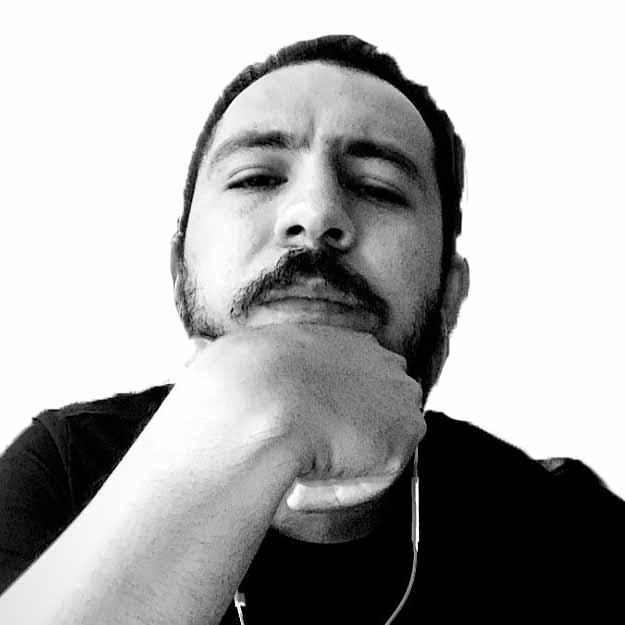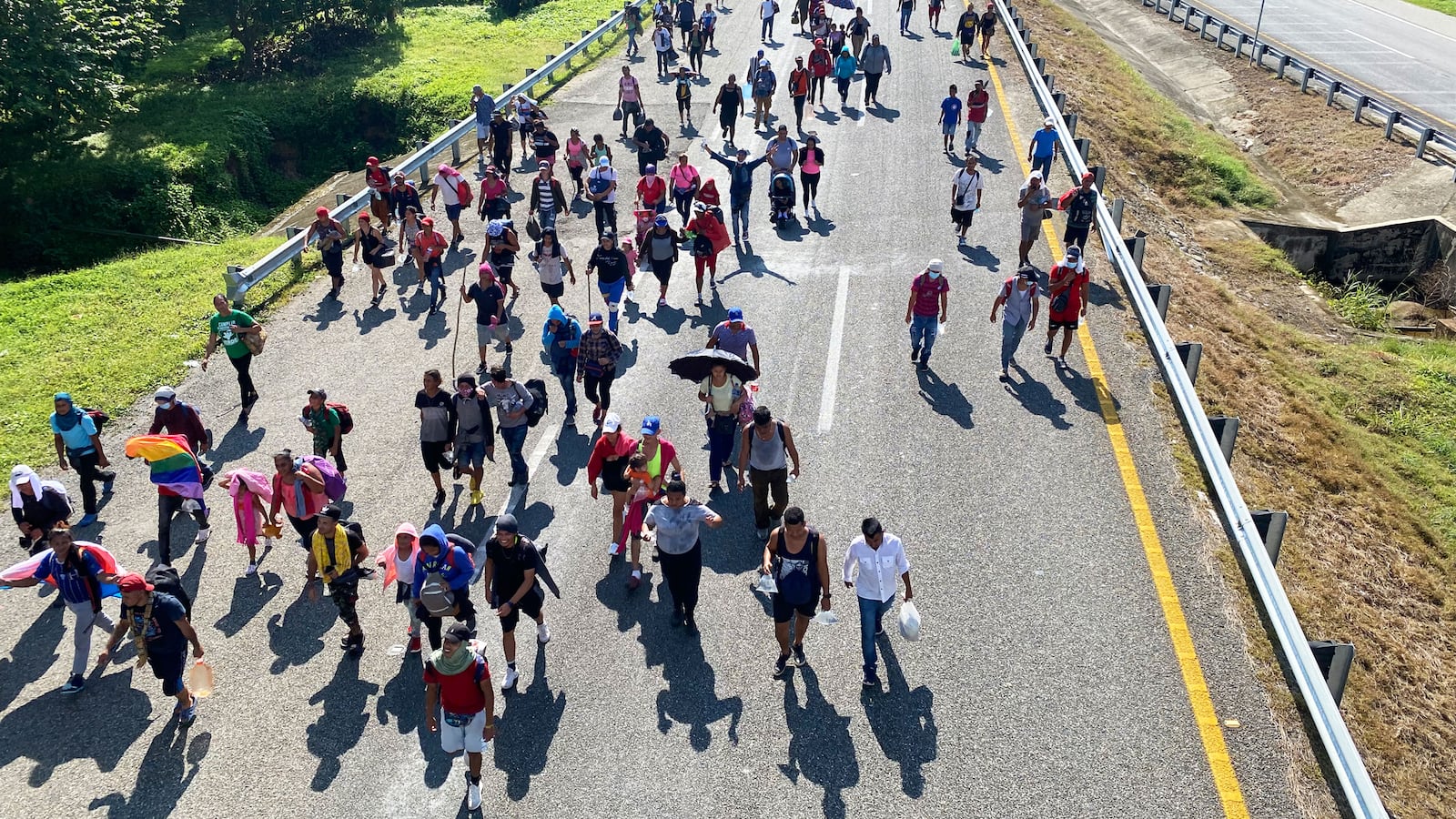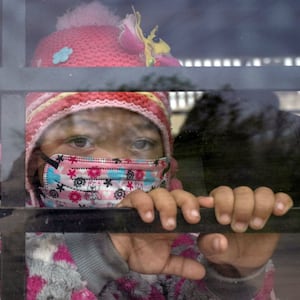TAPACHULA, Mexico—As the Mexican National Guard marched along the highway, Nilton Aguilar, a 41-year-old man from Guatemala, held his 9-month-old baby daughter tightly against his chest.
The last time he and his family tried to exit Tapachula—a small Mexican city at the border with Guatemala—to head north to the U.S. in August, Nilton said that Mexican immigration authorities tackled him to the ground, took his baby from his arms and beat him for hours before throwing him in jail for three months. He told The Daily Beast that by the time he was released, his family had already been deported to Guatemala, where he had returned to reunite with them after leaving prison.
Now Nilton is trying again, and this time he’s one of roughly 4,000 migrants in a northbound caravan that departed Tapachula on Oct. 23 with two main goals: getting to Mexico City to pressure Mexican immigration authorities to provide legal paperwork for them to move freely inside the country, and then making it to America.
Throughout the journey, Nilton’s other four children are pressed between their father and mother, following them closely. The extreme heat, the heavy occasional rains and the large number of children and pregnant women in the caravan have slowed down the pace of the group, advancing only around 20 km each day.
“It won’t happen to me again,” said Nilton, standing beside his family, under the shade of a tree. “This is the third time we’ve tried to leave Tapachula in a caravan, and we have decided to make it all the way to the U.S. this time.”

Nilton’s family rests under a shade after walking for 10 miles under the hot weather from Huixtla to Villa Comatitlan.
Luis ChaparroThe family did make it farther than they did last time. After the men at the front of the migrant caravan clashed and passed through the National’s Guard blockade, Nilton knew they had made it out of the city limits of Tapachula to the main highway that eventually leads to Mexico City.
Nilton explained that the caravan provided safety in numbers, making it his only way out of Tapachula without being beaten and deported back home. Under intense pressure from the U.S., Mexico has essentially built an “immigration prison” out of Tapachula. Here, Mexico’s army and immigration authorities have installed a number of checkpoints along every highway to block migrants without paperwork from making it into the U.S.
“This is, today, America’s biggest immigration prison,” said Luis Villagran, an activist for the rights of migrants and founder of the NGO Pueblos Unidos Migrantes. “Starting during the present administration, Mexican authorities have installed violent tactics to stop free migration.”
In an agreement with the U.S. after a series of bilateral discussions earlier this year, Mexican authorities have committed to deploying about 10,000 troops over the southern border “to make it more difficult to make the journey, and make crossing the borders more difficult,” as White House press secretary Jen Psaki put it in an April press conference.
As of October, Mexican authorities had more than 28,000 military deployed between both borders, surpassing the roughly 21,000 U.S. Border Patrol agents deployed on American borders.

Locals hand out water to migrants inside the caravan outside of Huixtla on their way north to the next town before arriving to Mexico City.
Luis ChaparroCarlos, a 46-year-old man from El Salvador, knows this “immigration prison” all too well. He says he’s been deported twice from the U.S. to El Salvador, and that this is his third time joining a migrant caravan.
“I’m here alone, I don’t have family either in El Salvador or the U.S. I was deported for the second time a few months ago, after being arrested in New Jersey,” he told The Daily Beast. Carlos wouldn’t share his last name or the reason behind his alleged arrest, but said that before being deported from the U.S. for the first time two years ago, he had spent five years working in New Jersey.
Carlos said he was not aware of the caravan until the same day he crossed illegally from Guatemala to Tapachula. “My plan was to get across and wait in Tapachula to get a chance to keep going north, but that same day I learned a caravan was leaving early in the morning and I joined,” he said. “I have nothing to do in El Salvador, the Maras [gangs] and the economy doesn’t allow us to work or to live with dignity.”
For Nilton, making it to the U.S. is worth risking his life for.
“We were stuck in Tapachula for two months before leaving, just waiting for the day the caravan started. There is no other way [to leave Tapachula] but to join a caravan and pray we don’t get arrested again,” said Nilton.
This would be the third migrant caravan attempting to get to the U.S. this year. In January, a caravan with around 6,000 migrants departed Tapachula for the U.S., but after walking more than 120 kilometers, Mexican authorities raided the caravan and deported hundreds. The second caravan departed in the last days of August and was violently blocked by Mexican immigration authorities before leaving Tapachula. During the clash between officials and migrants a man was brutally kicked in the head by a Mexican immigration employee.

Carlos, from El Salvador, covers himself with an American flag as he walks at the center of the caravan.
Luis ChaparroHopeful and determined to get to the U.S., Carlos says he relies on two things: Biden’s “devotion to God” and an American flag he carries over his head.
“This is my passport,” he said, stretching the worn out flag over his shoulders as he walks with the rest of the caravan. “This is all the passport I need.”







